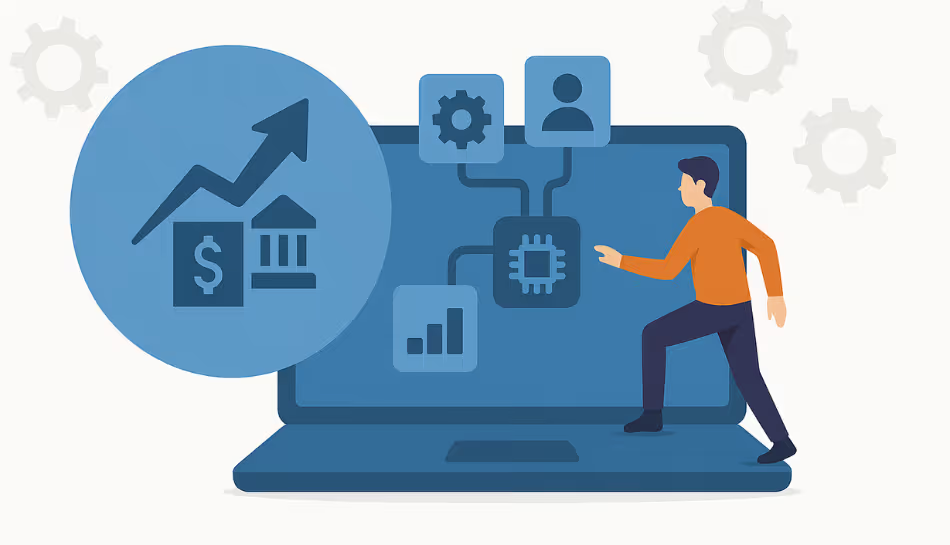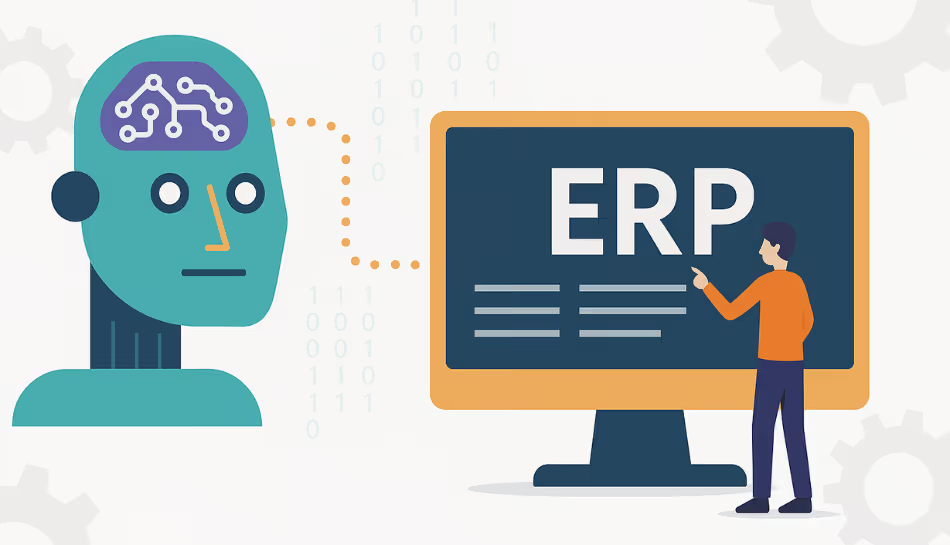
Non-Banking Financial Companies (NBFCs) have become crucial players in India’s financial ecosystem. Offering everything from personal loans to equipment financing, NBFCs reach deep into sectors and communities that traditional banks often overlook. But as competition heats up and customer expectations grow, the future of NBFCs depends on how well they adapt to digital transformation.
By 2026, NBFC digital transformation will not be just about having an app or website, it will mean fully integrated, AI-powered, customer-centric operations. Let’s explore the future of NBFCs, the evolution of NBFC software, and the must-have digital solutions that will define the next generation of lenders.
Why Digital Transformation Is No Longer Optional
Digital-first customer behavior, rising regulatory demands, and the need for faster service are reshaping how NBFCs operate. The shift is happening across three major fronts:
- Customer experience (faster onboarding, self-service portals)
- Operational efficiency (automation, reduced paperwork)
- Risk and compliance (real-time reporting, fraud detection)
Key Areas of Digital Transformation for NBFCs
1. Loan Origination Systems (LOS)
A modern LOS automates every stage of the lending process, from application to disbursal. Features include:
- Digital KYC and document collection
- Automated credit scoring
- Real-time status updates
- E-signatures and API integrations
This reduces turnaround time and ensures smoother NBFC customer onboarding.
2. Loan Management Systems (LMS)
Post-disbursal, a cloud-based LMS helps manage collections, EMIs, and defaulters. By 2026, the best LMS platforms will:
- Predict repayment risks using AI
- Offer automated reminders and alerts
- Integrate with payment gateways and UPI systems
These tools ensure transparency, reduce NPAs, and improve customer trust.
3. AI-Powered Chatbots and Customer Portals
As part of the evolution of NBFC service delivery, chatbots and mobile apps will provide 24/7 access to:
- Loan applications and balances
- FAQs and support
- EMI calculators and scheduling tools
AI will not only improve self-service but also personalize the customer journey.
4. Credit Risk Management Tools
Traditional scoring models are being replaced with AI and data-driven tools that assess borrower behavior from multiple sources like:
- Social media signals
- Utility payments
- Mobile usage patterns
These next-gen risk models help NBFCs serve thin-file customers while managing risk more accurately.
5. RegTech and Compliance Automation
Regulations are constantly evolving, and manual compliance processes can’t keep up. By 2026, NBFCs will rely on:
- GST-ready billing software
- Automated audit trails
- Real-time RBI reporting dashboards
- Multi-jurisdiction compliance engines
This helps NBFCs stay agile, audit-ready, and fully compliant without constant human intervention.
6. Integrated Accounting and ERP Software
As NBFCs scale, they need a unified view of finance, operations, HR, and sales. Cloud-based ERP systems built specifically for NBFCs:
- Eliminate data silos
- Improve cash flow visibility
- Support real-time decision-making
An integrated approach to data is key to the future of NBFC management.
The Future of NBFCs: Smarter, Faster, and Customer-First
In 2026, the most successful NBFCs won’t just be financial providers, they’ll be tech-powered platforms offering seamless, paperless, and personalized experiences.
Key trends to expect:
- Hyper-personalized loan offers using AI
- Paperless onboarding through biometric verification
- Blockchain-based smart contracts for lending
- Embedded lending through third-party platforms
The NBFC future is about using digital innovation to meet people where they are, with faster services, better insights, and stronger trust.
Final Thoughts
The road ahead for NBFCs is both promising and demanding. As the market matures, digital transformation will be the key to staying relevant and scalable. Whether you're a small lender or an established player, investing in the right NBFC software solutions in 2026 will define how you compete, grow, and serve your customers.

